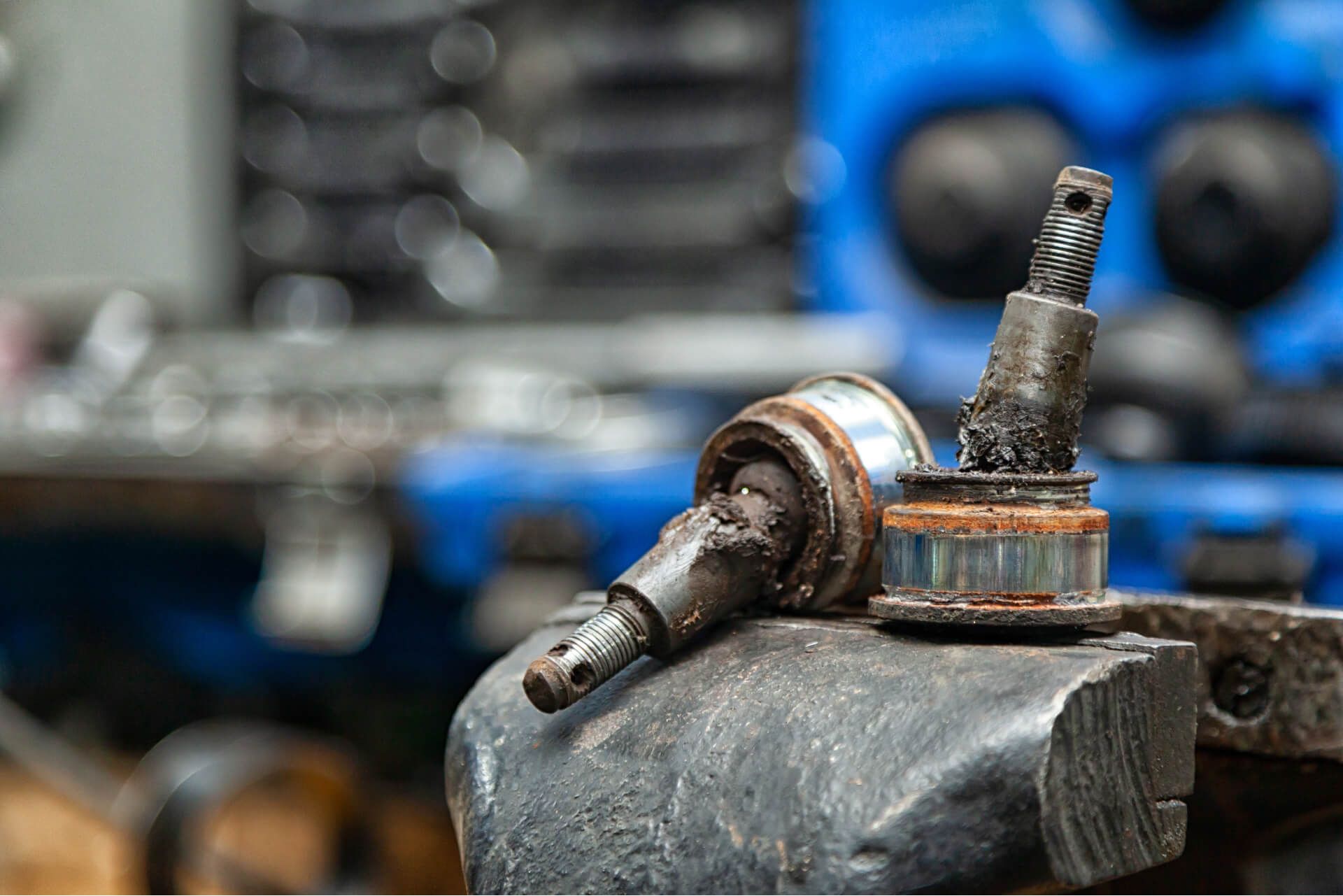Loading ...
Missing business hours data / Error occurred while getting the data.
Loading ...
Missing business hours data / Error occurred while getting the data.
Steering and Suspension Repairs in Wells, ME
The steering and suspension on your vehicle help provide comfortable riding conditions along with driving performance. The steering system in today's vehicle's can be either mechanical or electronic. Generally speaking, in a non-electronic steering system your vehicle will have a steering wheel, rack and pinion, steering knuckles, inner and outer tie rod ends, power steering pump and power steering hoses. If your vehicle has electronic steering there will be an electric motor on your rack and pinion and your vehicle will not need a power steering pump or hoses. A vehicle's suspension is generally made up of struts, shock absorbers, coil springs, wheel bearings, ball joints, control arms, sway bar links and sway bars.
It's important to know when to replace your car's shocks and struts so that you can enjoy a safer, smoother ride. The shock absorbers and struts should be replaced every 50,000 miles driven, according to the Motorist Assurance Program (MAP). The following symptoms and signs indicate whether your car requires shocks and struts service or repair: If your car has been nose-diving, floating, leaning, or bouncing, it's a definite sign that you need to visit your nearest auto repair center.
Common Symptoms that indicate that your vehicle's steering or suspension need to be inspected by one our certified steering and suspension technicians include:
- Acceleration squat
- Excessive nose diving of vehicle when braking
- Excessive vehicle sway on road and body roll during cornering
- Unusual tire wear patterns
- Clunking or squealing noises when turning or going over bumps
- Vehicle pulls to one side
- Difficulty steering the vehicle
- Tires shake or wander while driving vehicle
- Groaning or howling noise while driving
The certified technicians at Archie's Off Road & Auto Repair Center in Wells, ME can perform an inspection of your steering and suspension components in order to make sure that your vehicle is safe and reliable for the road!
Understanding Suspension: Independent vs. Solid Axle
When comparing offroad vehicles like Toyotas and Jeeps, it's crucial to grasp the distinctions between independent suspension and solid front axle suspension. These systems profoundly impact performance, handling, and overall capabilities across diverse terrain.
Independent Suspension (IFS):
Toyota Example:
Toyota vehicles typically incorporate independent front suspension systems (IFS), where each wheel is attached to its own suspension unit. Key features include:
- Component Independence: Independent suspension allows each wheel to move vertically without directly affecting the opposite wheel. This arrangement contributes to smoother handling and improved ride quality, especially on uneven surfaces.
- Versatility and Comfort: IFS provides superior comfort and adaptability, making it suitable for a variety of driving conditions. Its design offers better traction and stability on paved roads and moderate off road trails.
Solid Front Axle Suspension:
Jeep Example:
Many Jeep models feature solid front axle suspension setups, connecting both front wheels to a single, rigid axle. Notable aspects of this system include:
- Enhanced Articulation: Solid axles provide exceptional articulation, allowing for greater wheel travel and improved traction in challenging off road terrain. This increased flexibility enables Jeeps to traverse obstacles with ease, such as rocks and deep ruts.
- Durability and Strength: Solid axles are renowned for their robust construction and ability to withstand harsh offroad conditions. They offer superior durability and reliability, making them ideal for extreme offroad adventures.
Key Component Differences:
- Tie Rods and Control Arms: IFS typically employs tie rods and control arms to connect the wheels to the vehicle's chassis, allowing for independent movement. In contrast, solid axle suspensions use a single solid axle beam that connects both wheels, limiting independent wheel movement but providing superior articulation.
- Steering Mechanisms: IFS often utilizes rack-and-pinion or steering box setups for precise steering control. Solid axle suspensions may use various steering mechanisms such as Hydraulic assist Steering Gear box or Full Hydraulic Steering to navigate challenging terrain and maintain stability.
Choosing the Right Suspension:
While IFS offers versatility and comfort for everyday driving, solid axle suspensions excel in extreme offroad conditions. The enhanced articulation of solid axles provides unmatched traction and maneuverability over rough terrain, making them the preferred choice for serious off roaders.
Understanding the intricacies of independent and solid axle suspension systems is crucial for selecting the right vehicle to meet your offroad needs. Whether prioritizing comfort or capability, choosing the suspension system that aligns with your driving preferences ensures a thrilling off road experience.
Loading ...
Missing business hours data / Error occurred while getting the data.
our address
Having trouble finding us?
Loading ...
Missing nap lines data / Error occured while getting the data.




